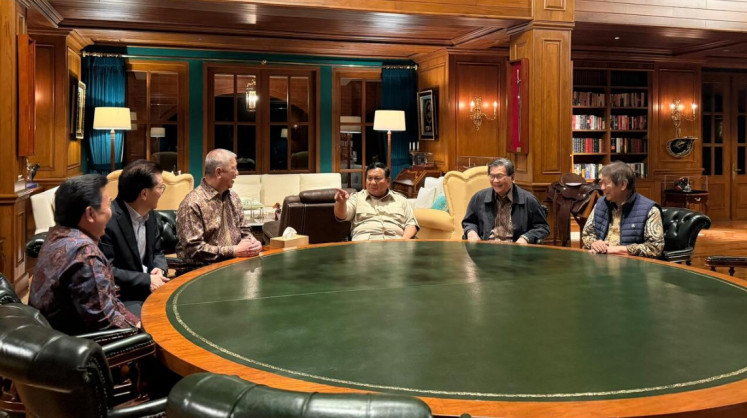Popular Reads
Top Results
Can't find what you're looking for?
View all search resultsPopular Reads
Top Results
Can't find what you're looking for?
View all search resultsIndonesia must adopt net neutrality law before next election
High internet penetration can be instrumental in shaping public opinion and political engagement, especially during election periods.
Change text size
Gift Premium Articles
to Anyone
I
ndonesia, with its rapidly developing democratic digital landscape, stands at a crossroads regarding its approach to managing the internet. The principle of net neutrality, which ensures that all internet traffic is treated equally without discrimination or preferential treatment, has been a topic of global debate.
Learning from the Feb. 14 election, establishing net neutrality is essential for maintaining a fair and democratic process in the future elections and strengthening democracy.
Indonesia’s digital landscape is burgeoning. With over 170 million internet users, it is the largest internet market in Southeast Asia. This growth is driven by a young, tech-savvy population and an increasing penetration of smartphones.
However, the Indonesian internet space is also characterized by diverse geographical challenges and varying levels of infrastructure development across its many islands, leading to unequal access to digital services.
Net neutrality requires internet service providers (ISPs) to treat all data on the internet equally. It prohibits ISPs from discriminating against specific websites or services, ensuring that there are no “fast lanes” for those who can pay more.
In the election context, imagine two political candidates, A and B, both of whom want to share their messages online. With net neutrality, both candidates' websites and social media content are equally accessible; neither has a speed or accessibility advantage. Without net neutrality, an internet provider could theoretically favor candidate A's content over B's, either by making it load faster or by making it more widely accessible. This could unfairly influence public opinion by giving candidate A more visibility and hindering the democratic process.
One of the strongest arguments for adopting net neutrality in Indonesia is to maintain a level playing field for all players in the digital space. Without net neutrality, larger companies could pay ISPs to prioritize their traffic, potentially stifling smaller competitors and start-ups who cannot afford these fees.



















